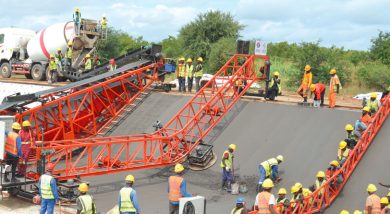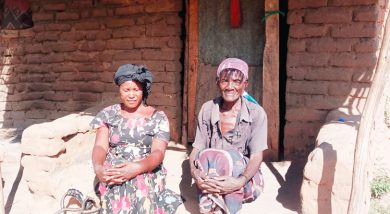Scaling up Covid-19 testing
The demands brought forth by Covid-19 have forced Lilongwe District deputy health environmental officer Gloria Kantema Jeremiah to move from her office within the premises of Lilongwe District Health Office.
Her new work space is outside, under a shade of trees.
The bare ground under the tree cover has become a Covid-19 testing centre at Bwaila Hospital.
Jeremiah leads the team attending to people who come for Covid-19 tests. Two lab technicians work from a small grey tent close by, where testing kits and collected samples are stored.

She supervises testing centre staff from the laboratory department, environmental health and clinical departments.
Besides the pressure of attending to a lot of people that cram the centre, the place also gets noisy because of the busy roads and footpaths criss-crossing around it.
The health officials operate over a din of continuous shouting and hooting vehicles from a nearby sprawling dusty ground, where minibuses going to different directions within the Lilongwe City operate from.
Jeremiah says the situation becomes tricky when it is raining.
“We move into the shelter that is at the right-hand side as you enter the gate, to wait for the rain to stop,” she explains.
Although Jeremiah has worked as an environmental health officer for 15 years, what she has experienced since the first Covid-19 cases in April 2020 is beyond her understanding.
She says: “I have never been as overwhelmed as I am now,” she recounts. “In six weeks, we have tested about 29 000 people.”
Testing children
At Bwaila Hospital, records show that few children have come for testing. In the past two weeks, less than 10 children aged between 12 and 13 came for testing.
Ministry of Health deputy director responsible for laboratory services Joseph Bitilinyu-Bango says Unicef, with support from the UK Foreign and Commonwealth Development Office, procured Taqpath test kits and Covid-19 Rapid Diagnostic Tests (RDT). These have helped them test between 5 000 and 6 000 children across the country.
“For example, at one of our major hospitals Kamuzu Central Hospital, over 807 children have been tested,” he said.
Before conducting the tests, Jeremiah and her team at the Bwaila Hospital testing centre talk to their clients about Covid-19, how the sample will be taken and what they should expect and do if the test results come out negative or positive.
Clients are also requested to provide their contact details. The team does the same when children come for tests, to put them at ease and help them understand what is happening.
“When children come to the hospital, the parents give us their history. We then talk to the children, explaining why they have to put on a mask and most of them understand this. Then we collect a sample for the Covid-19 test” Jeremiah says.
She says the biggest assurance they give is that no child has been hospitalised to the extent of needing oxygen and they should therefore not be afraid.
A rapid response team goes around visiting some of those who test positive to assess their situation. If there is a need for hospitalisation, an ambulance is provided.
The rapid response team, comprising environmental health officers, clinicians, nurses and lab officers, also collects samples from contacts of the patients after contact tracing.
Whether the contacts results are negative or positive, the contacts are advised to quarantine for 14 days- which is the Covid-19 incubation period.
Sacrificing family time
For the 50-year-old mother and wife there is no proper knock off time and often no weekend breaks.
Even at home, Jeremiah attends to Covid-19 issues day or night since her mobile number is one of the Rapid Response numbers to call for Lilongwe.
“I always try to convince my family that someone somewhere is in need of a service or information which may cost a life if not attended to,” she says.
Jeremiah says balancing work and family life in this pandemic is a big challenge but she keeps assuring her husband and children that this crisis will pass. n
*This article was first published on https://www.unicef.org/ on February 25 2021





